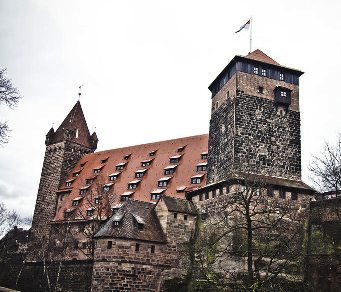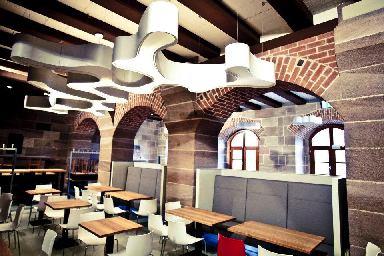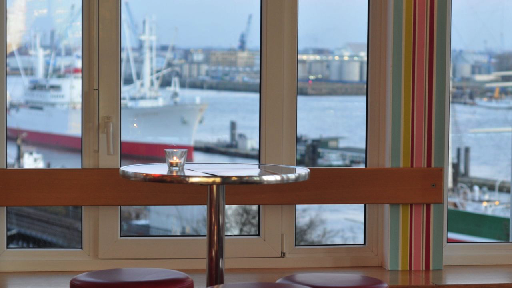| Seite 5 |
Kausale ZusamenhängeCausal connections involve compound sentences using conjunctions that mean "because" or "therefore". In German, the most frequent conjunction that means "because" is weil. In this case, the syntax (word order) is very different from English, namely that weil "kicks" the finite verb to the end of the clause.Examples:
Examples:
Note: Conjunctions are fundamental to language, because they go beyond stating a fact or idea: They show connections and relations between facts and ideas. |
Übung 5-5a Kausale Zusammenhänge erfragen und ausdrücken Teil A (Teil B ist auf Seite 11.)
(1 = Frage [question], 2 = Grund [reason])
Beispiel
-
A
- Herr Schrader
- ist arbeitslos
-
B
- Herr Schrader
- hat kein Geld?
B: Warum hat Herr Schrader kein Geld? → A: Herr Schrader hat kein Geld, weil er arbeitslos ist.
|
|
|
|
|
|
|
|
|
|
|
|
Übung 5-5b: Kausale Zusammenhänge erfragen und ausdrücken Frau Meier bereitet ihre Urlaubsreise vor.
Aber sie hat viele Probleme. Was ist denn mit Frau Meier los? Schreiben Sie, warum Frau Meier diese Probleme hat.
Was ist die Ursache (cause) und was ist die Wirkung (effect)? Verbinden (Connect) Sie die Ursachen und Wirkungen, die am sinnvollsten sind
(that are the most logical). Zum Beispiel:
- /kann nicht schlafen/ -- /ist müde/ → Frau Meier ist müde, weil sie nicht schlafen kann.
- (NICHT: Frau Meier kann nicht schlafen, weil sie müde ist.)
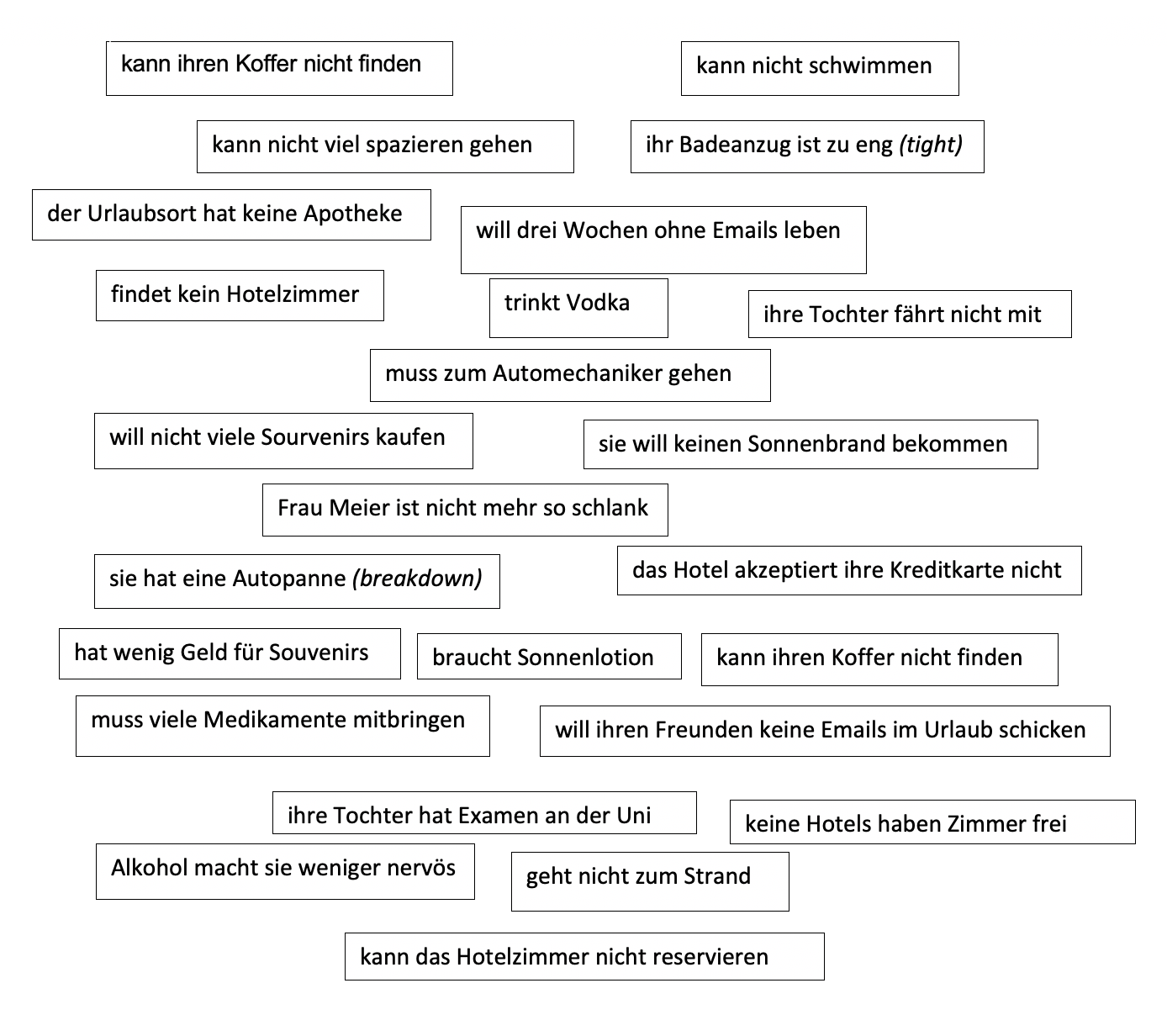
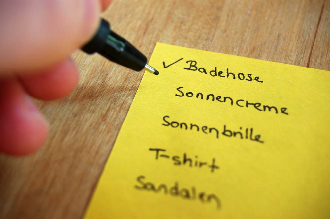
Übung 5-5c: Warum ist der Ausflug so schön? Complete this exercise on BOLT. Word salad: Construct answers to the following questions, using weil and the words listed after the question. Write complete compound sentences. For example: Warum fährt die Straßenbahn heute nicht? / es gibt / heute / in der Stadt / ein Straßenfest → Die Straßenbahn fährt heute nicht, weil es heute in der Stadt ein Straßenfest gibt.
Wortschatz: You will need to know the following words: der Ausflug, die Fahrradtour, der Hafen, aussteigen, die Burg, besichtigen, anstrengend, die Führung, die Ermäßigung, der Radweg, die Jugendherberge, günstig, bequem, das Reiseandenken
- Warum freut Carola sich so sehr auf den Ausflug? sie / lieben / Fahrradtouren / mit Freunden/ in der Natur
- Warum kommen Carolas Eltern nicht mit? müssen / ihre Eltern / arbeiten
- Warum fahren die Kinder mit den Fahrrädern zum Hafen? die Kinder / wollen / fahren/ mit dem Schiff / ins Grüne
- Warum steigt Carola mit ihren Freunden in der Stadt Sankt Goar aus? Carola / möchten / die Burg Rheinfels / besichtigen
- Warum ist der Weg zu der Burg so anstrengend? die Burg / stehen / hoch auf einem Berg
- Warum ist die Führung durch die Burg so billig? Studenten / bekommen / heute / eine Ermäßigung
- Warum gehen die Studenten nach der Burgbesichtigung in die Stadt. sie / haben / Hunger / und / müssen / etwas / essen
- Warum ist Sankt Goar für Radfahrer so populär? die Stadt / liegen / direkt / am langen Radweg
- Warum gehen Carola und ihre Freunde zur Jugendherberge? wollen / sie / in der Jugendherberge / übernachten
- Warum bleiben junge Leute gern in einer Jugendherberge? Jugendherbergen / sein / bequem / und / im Preise günstig/
- Warum hat Carola nach dem Ausflug kein Geld mehr? sie / kaufen / viele / Reiseandenken
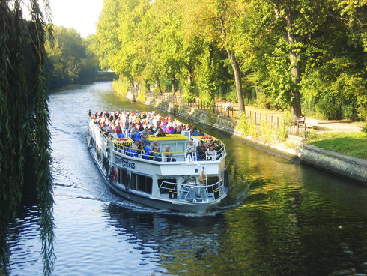 Bootstour / Schiffstour |
 Burg Rheinfels |
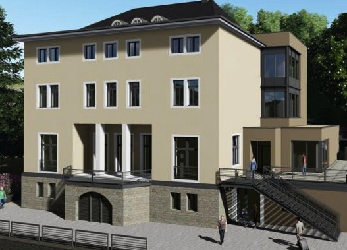 die Jugendherberge |
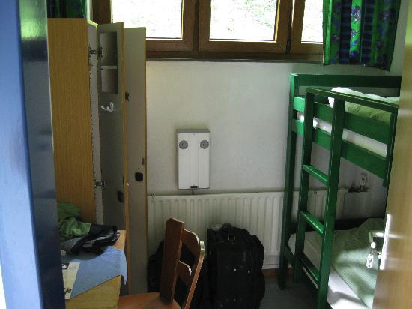 die Jugendherberge - Schlafzimmer |
Kulturnotiz: JugendherbergenJugendherbergen, called "youth hostels" in English, began as an outgrowth of the Jugendbewegung (Youth Movement) in the early 20th century. The movement began as a program to have young people in cities get out into nature, hike, camp, engage in sports, sing, and take part in other healthy group activities. Die Jugendherberge provided a clean, mostly comfortable, and inexpensive accommodation for students. Today there are youth hostels all over the world, but Germany has by far more than any other country. Most of Germany's Jugendherbergen are organized under Das Deutsche Jugendherbergswerk (DJH), with similar organizations in Österreich and in der Schweiz.Die Mitgliedschaft ist erforderlich. (Membership is required.) Die Mitgliedschaft kostet nur €7 für Leute bis 27 Jahre alt. Ab 27 Jahren kostet die Mitgliedschaft €22,50. Jugendherbergen haben Mehrbettzimmer (rooms with several beds) aber auch oft Zimmer mit nur zwei Betten oder mit einem Bett. Diese Zimmer sind natürlich teurer. Sie haben auch Gemeinschaftsräume (common rooms) und haben oft Tagungen (conferences) und Seminare. Jugendherbergen are classed in four categories: Kategorien I bis IV -- von zweckmäßig (functional) bis hochwertig (premium), depending on amenities. Eine Übernachtung (overnight stay) kostet zwischen €15 und €33. Das Frühstück ist im Übernachtungspreis (room rate) enthalten (included). Besonders preisgünstig (low price) ist die Vollpension (full board - all meals). Alle 500 Jugendherbergen in Deutschland sind an zentrale Reservierungssysteme angeschlossen (connected). Gäste (guests), aber auch Gruppen und Familien können direkt online buchen (book). German Jugendherbergen are diverse and some are themselves tourist attractions. The Jugendherberge in Nürnberg is in a castle, but with premium modern facilities. One of Jugendherbergen in Hamburg sits right on the famous harbor.
Übung 5-5d. Inhaltsfragen: Beantworten Sie die Fragen mit ganzen Sätzen im BOLT. Finden Sie die richtigen Antworten!
die Antworten: im Internet / mit einer Kreditkarte / Ja / €7 / zwischen €15 und €33 / 478 / im Seminarraum / nichts / 500 / €23 / im Gemeinschaftsraum / eine Mitgliedschaft / 27 Jahre alt |
Kausale Zusammenhänge 2German has several words that mean "therefore", which indicate causal connections: deshalb, daher, deswegen, also, darum to name the most frequent. These conjunctions are synonyms with slight stylistic nuances. For the purpose at hand, only one conjunction, deshalb, will be used.When used as a conjunction, the "therefore" clause shows the "effect" or the "consequences" and must follow the one indicating the "cause". Word order: the conjunction deshalb is normally the first word in the second clause, followed by the verb and then the subject. Examples:
|
Übung 5-5e: Frau Meier wieder! Work with a partner. Reconstruct the causal statements in Übung 5-5b, using deshalb instead of weil to express the causal connections. See the corresponding exercise on BOLT.
Beispiel: Frau Meier ist müde, weil sie nicht schlafen kann. → Frau Meier kann nicht schlafen, deshalb ist sie müde.
(Always place "Frau Meier" in the first clause and the "sie" in the second clause, wherever "Frau Meier" and "sie" are the subjects.)
